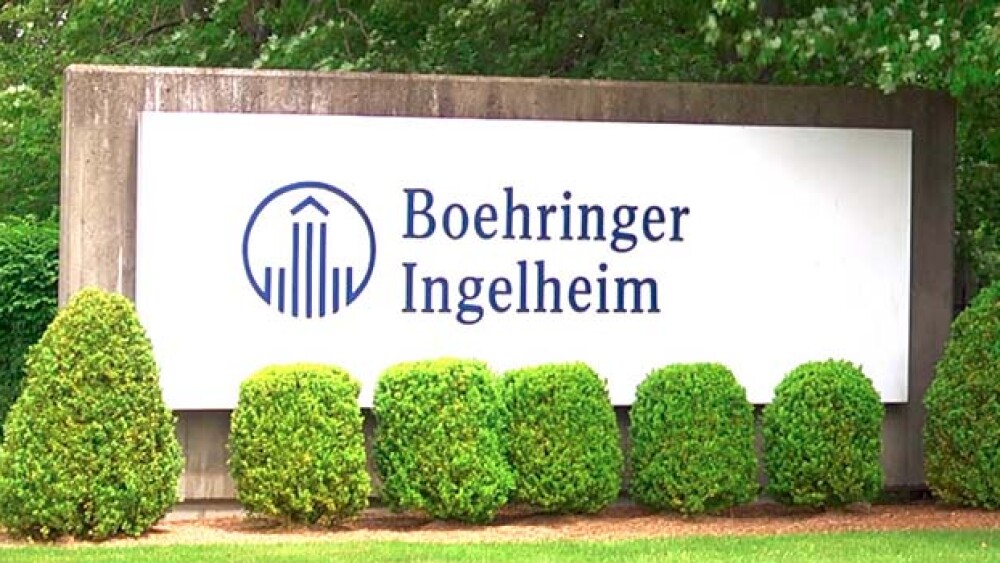Boehringer Ingelheim and OSE Immunotherapeutics signed a collaboration and license deal to jointly develop OSE-172 for myeloid cancers.
Boehringer Ingelheim, headquartered in Ingelheim, Germany, and OSE Immunotherapeutics, based in Nantes, Frances, signed a collaboration and license deal to jointly develop OSE-172 for myeloid cancers.
Under the terms of the agreement, Boehringer will pay OSE Immunotherapeutics 15 million euros upfront, or about $18.38 million (U.S.). There are potential short-term milestones of up to $18.38 million upon the start of a Phase I clinical trial. Additional development, commercialization and sales milestones could reach more than 1.1 billion euros, or $1.35 billion (U.S.). OSE is also eligible for royalties on worldwide net sales.
OSE-172 is a checkpoint inhibitor. It is a SIRP-alpha antagonist that targets myeloid lineage cells. SIRP-alpha is expressed by myeloid lineage cells like Dendritic Cells (DCs), tumor-associated macrophages (TAMs) and Myeloid-Derived Suppressor Cells (MDSCs). OSE-172 appears to prevent the activity of SIRP-alpha, which can improve the body’s immune response.
“This partnership with Boehringer Ingelheim is a real recognition of the value of our innovative approach to treating cancer and will create an exciting new alliance to fuel the Phase I development of OSE-172,” said Dominique Costantini, chief executive officer of OSE Immunotherapeutics, in a statement. “Boehringer Ingelheim’s expertise and insights will be invaluable as we step up the clinical development and work to commercialize this new treatment paradigm.”
This is not the only partnership for OSE Immunotherapeutics. It has a development and commercialization program with Servier for its interleukin-7 antagonist that targets autoimmune disease. That deal is worth up to $283 million. It also has a research collaboration with Memorial Sloan Kettering to study OSE-703, an anti-CD127 antibody, for non-small cell lung cancer and other solid tumors. In July 2016, Johnson & Johnson’s Janssen optioned to license the company’s anti-CD28 monoclonal antibody, FR104, for autoimmune diseases.
At its March 28, year-end financial report, Costantini stated, “Throughout 2017, in close collaboration with Janssen Biotech and Servier, we have continued the development of our breakthrough immunotherapies in autoimmune diseases, including preparation for the start of clinical phase of OCE-127 in ulcerative colitis by the end of 2018. We have also advanced our programs in immuno-oncology and within the next few months expect to start clinical phase with OSE-172, as well as an exploratory Phase II clinical trial in pancreatic cancer with Tedopi in combination with checkpoint inhibitors. Finally, after redefining the recruitment strategy in our Phase III trial of Tedopi in advanced lung cancer, we are very happy to be able to redeploy the trial internationally in early 2018. Clinical advances of four of our products, two of which being partnered with leading pharmaceutical partners, are the next steps of the company’s growth, supported by our partnerships with international pharmaceutical groups and by the grants obtained from Bpifrance.”
Of today’s deal, Jonathon Sedgwick, Boehringer Ingelheim’s Global Head Cancer Immunology & Immune Modulation Research, stated, “We are excited to partner with OSE Immunotherapeutics to develop this promising, novel cancer immunotherapy. A key area of focus is the identification of drugs that target myeloid cell immune regulatory receptors of which SIRP-alpha is a leading example. We are dedicated to developing ground-breaking, first-in-class therapies that can transform the lives of patients and help with the fight against cancer.”





